Letters penned 120 years ago by Bristol cricket legend in which he brands his teammates ‘poor’ unearthed
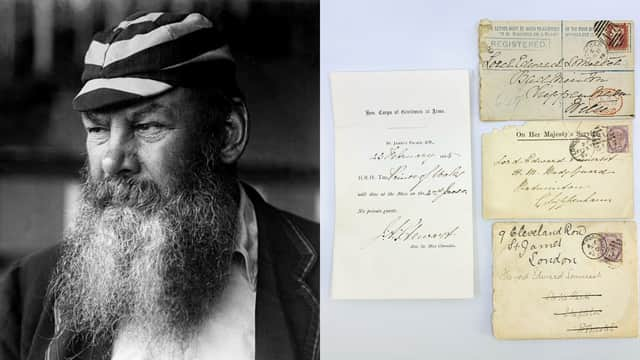

Letters written more than 120 years ago by legendary Bristol cricketer WG Grace in which he brands his underperforming teammates as ‘poor’ have been unearthed.
The ‘father of cricket’ wrote the correspondence to Lord Edward Somerset in 1896-97.
Advertisement
Hide AdAdvertisement
Hide AdIn the three letters, the former England captain, moans about his teammates, describing them as ‘a poor lot’.
WG Grace played first-class cricket for 44 seasons from 1865 to 1908 and captained England, Gloucestershire, the Gentlemen, Marylebone Cricket Club (MCC), the United South of England Eleven (USEE) and several other teams.
The matches drew large crowds and Grace cemented his reputation by turning the Gentlemen from serial losers into regular winners.
In 85 matches, his contribution was immense, scoring more than 6,000 runs and taking 271 wickets.
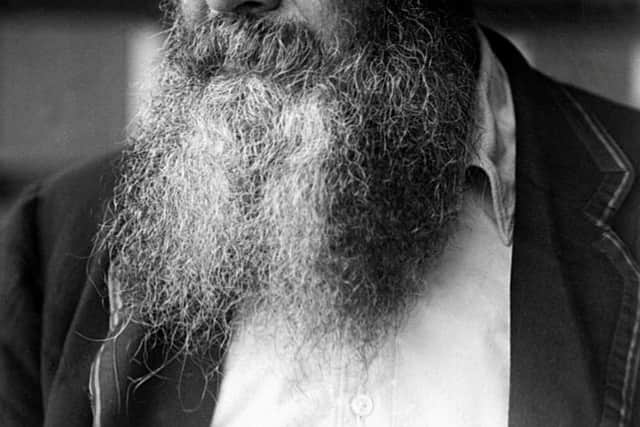

Advertisement
Hide AdAdvertisement
Hide AdStill only 23, Grace scored a staggering 2,739 runs in the 1871 season.
His average of 78 was double that of the next best player.
His letters were written to Lord Edward Somerset in 1896 and 1897 from Ashley Grange, Grace’s Bristol home.
In one letter, WG Grace wrote: “I had no idea you were still laid up until this afternoon, when I saw Rowe and asked for you.
“I was in hopes you would have been in the ground to have seen us running after the Yorkshire hits.
Advertisement
Hide AdAdvertisement
Hide Ad“We have a poor lot playing but still ought to have made more runs.”
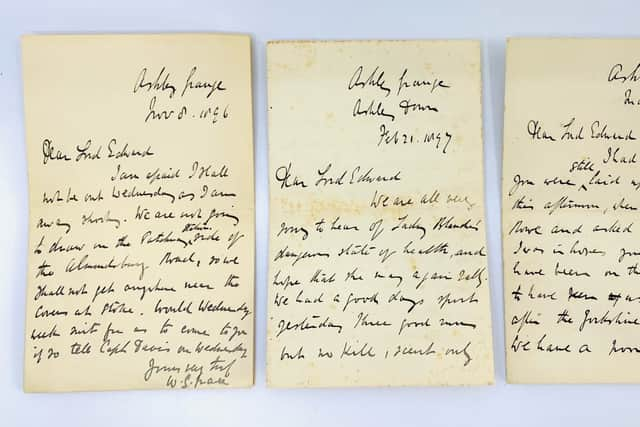

His letters, and a collection written by his younger brother EM Grace – also a gifted cricketer – were found in a farmhouse in Bristol.
They were discovered by independent valuer and IPL auctioneer Richard Madley who said: “The letters lay undisturbed in the top drawer of a George III mahogany tallboy.
“I had to stand on tip toes to pull them out. They form part of the estate of a cricket enthusiast.
Advertisement
Hide AdAdvertisement
Hide Ad“How exciting to discover a signed letter by WG but also his younger brother Edward, who was secretary of Gloucestershire CCC at the end of the 19th century and a rarer signatory.
“Everyone thinks WG’s signature is the most valuable but his brother’s is particularly scarce.”
In a letter EM Grace wrote to Lord Somerset in 1896 he said: “I am pleased that you and J Rowe will play next Tuesday at Weston, Bath.
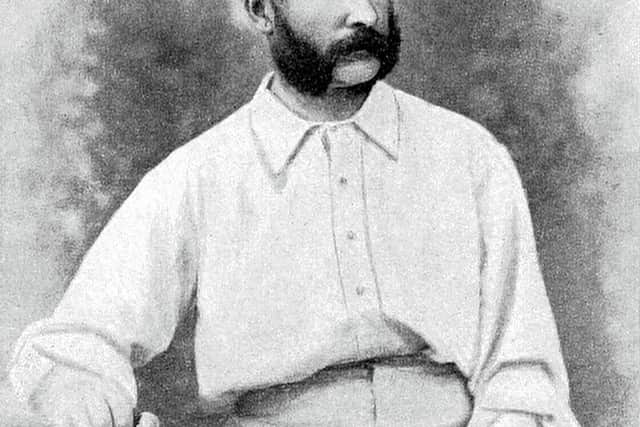

“Am sorry you cannot play on Tuesday. I shall expect J Rowe unless I hear to the contrary.
Advertisement
Hide AdAdvertisement
Hide Ad“Will you let me what matches to put you and him down for - I shall be pleased to play you both in all of them if you can manage it.”
The letter is signed ‘Edward Mills Grace’ and one comes with an envelope, postmarked Thornbury, 6 May 1896.
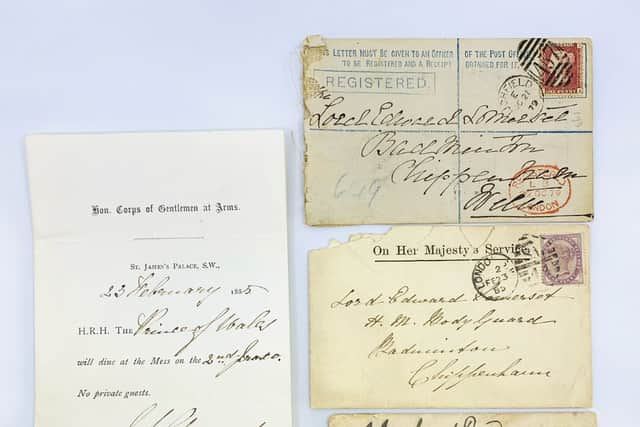

There is also an empty envelope addressed to Lord Somerset, postmarked Lichfield, October 21, 1879 and an invitation to dine with The Prince of Wales, on February 23, 1885.
Like his brother, EM Grace was a gifted all-rounder, and played for Gloucestershire County Cricket Club.
The letters are expected to fetch more than £1,200 when they go under the hammer at Hansons Auctioneers next month.
Comment Guidelines
National World encourages reader discussion on our stories. User feedback, insights and back-and-forth exchanges add a rich layer of context to reporting. Please review our Community Guidelines before commenting.
